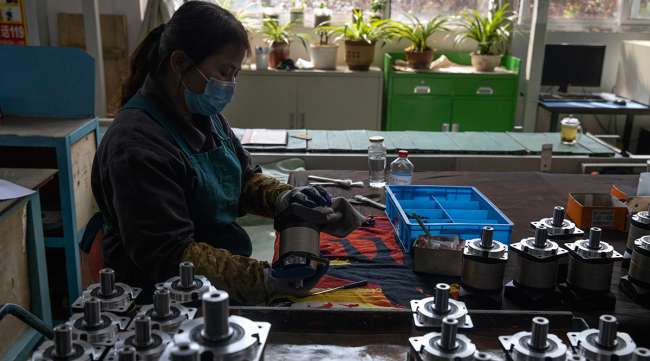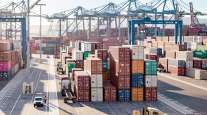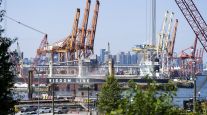Staff Reporter
What a Manufacturing Shift Away From China Could Mean for Trucking

[Stay on top of transportation news: Get TTNews in your inbox.]
The coronavirus pandemic and an ongoing trade war with the United States have accelerated the threat China faces of businesses moving manufacturing operations elsewhere, but the effects those potential shifts have on U.S. trucking operations depends largely on where, ultimately, companies choose to move.
Gartner in survey results released in June found that 33% of global supply chain leaders had either moved sourcing and manufacturing activities out of China or planned to do so in the next two to three years. The survey involved 260 participants and was conducted between February and March.
“The localization of goods from China to, let’s say, the U.S. and Mexico is one scenario,” Glenn Koepke, vice president of network enablement at FourKites, told Transport Topics. “The second scenario is out of China and into other lower-cost countries, which specifically would be Southeast Asia.”

Bingham
“The question for trucking is, does that move out of China shift out of the continent, or does it shift within Asia,” added Paul Bingham, director of transportation consulting at IHS Markit Economics. “If it’s a shift into Vietnam, Bangladesh or even to India in some respects — it’s not going to necessarily affect U.S. trucking very much.”
As it relates to goods arriving at U.S. ports, Bingham noted that containerships arriving from Asian countries other than China wouldn’t bring significant change to drivers picking up those shipments from the ports — they’d be handling the same type of commodities on the same types of distribution networks.
Koepke agreed. “It wouldn’t be too much of a change from what we see today in terms of the importation rules and customs trade compliance,” he said. “That would still remain. It would still require that we have the right drayage capacity.”
But if the U.S. saw the bulk of the manufacturing shift, that could have a significant effect on domestic trucking, Bingham noted.
“Where it gets more interesting is if there really is some on-shoring that happens, where we actually bring some manufacturing back into the United States,” Bingham said. “In that case, trucking could be affected in a couple of ways.” For example, he pointed out that port activity would give way to more domestic shipping, as goods would no longer be arriving from overseas.

Koepke
Koepke added that, in this scenario, domestic carriers would generally see increased shipment volume and demand, which would lighten congestion at ports while putting more trucks on the highways.
But Avery Vise, vice president of trucking at FTR Transportation Intelligence, told TT that he doesn’t expect the U.S. to see a lot of manufacturing transferred back from China.
“We’re not going to see the production of a lot of the things we import from China come to the U.S. because the margins on those goods are too low,” Vise said. “A lot of consumer goods, like toys and games, we just can’t make that domestically because of labor costs.”
American Trucking Associations Chief Economist Bob Costello agrees that a huge shift into the U.S. seems unlikely. He noted that much of what is manufactured in China are labor-intensive, lower-value goods, while U.S. manufacturing is more high-value with greater automation.
One caveat he sees, however, is manufacturing that shifts from China to Mexico.
“Should the production go to Mexico, it would be a shot in the arm for U.S. trucking,” he said. “Over 80% of the surface-transported trade with Mexico moves via truck.”
RELATED: ATA Praises USMCA Pact
And the new United States-Mexico-Canada Agreement opens the door to a renewed boost in business with Mexico and Canada, Vise noted.
“We definitely could see more from Mexico and to a lesser extent, Canada,” Vise said. “That would have less to do with a conscious decision to move away from China than it does with the terms of the USMCA.”
Want more news? Listen to today's daily briefing:
Subscribe: Apple Podcasts | Spotify | Amazon Alexa | Google Assistant | More




